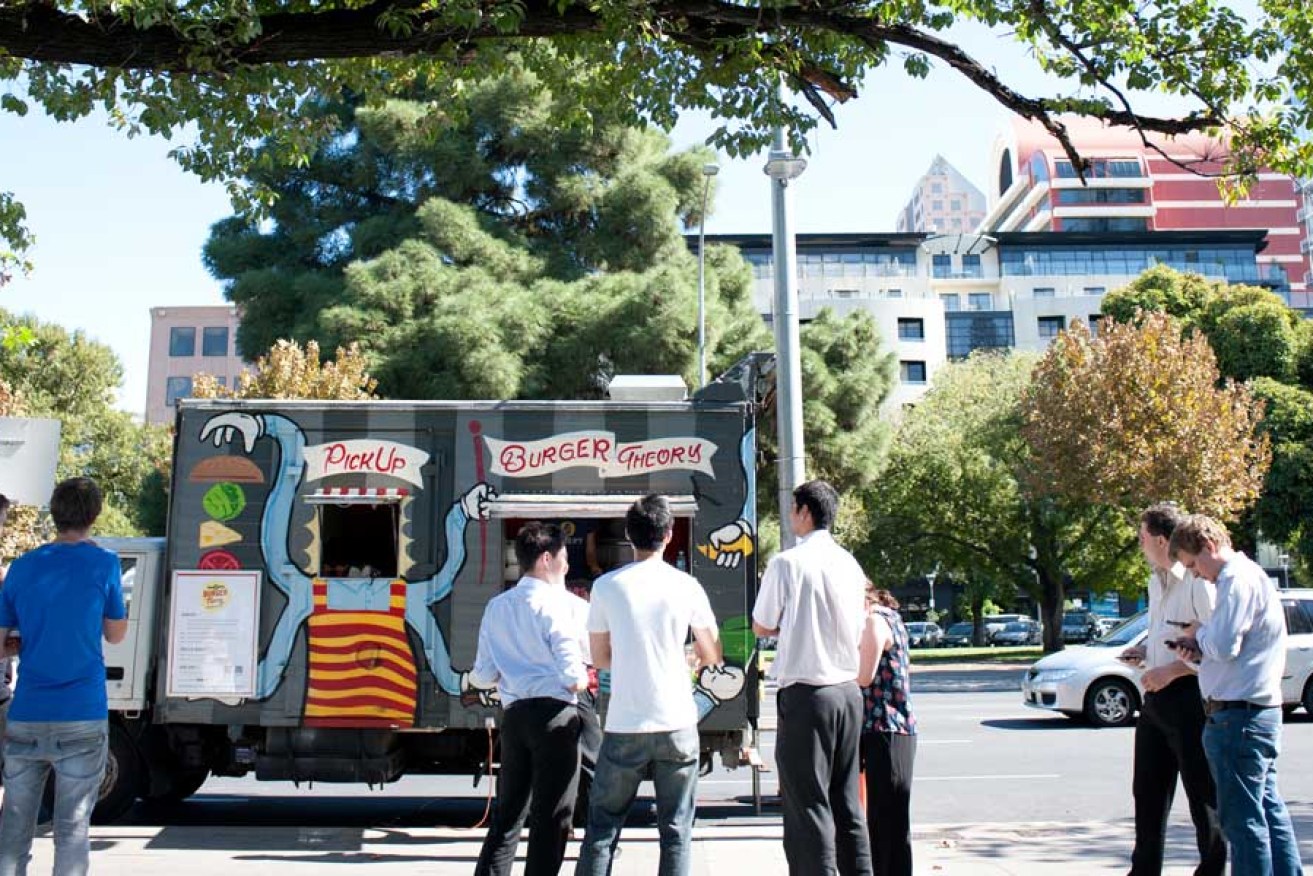Restaurants push food truck crackdown


Hindmarsh Square is the location for Saturday's cider festival.
The peak body for the restaurant and catering industry has warned the State Government’s “vibrancy” agenda is damaging established businesses, and it wants more stringent regulation of the city’s growing fleet of food trucks.
Restaurant and Catering SA this week presented its election policy to the Shadow Cabinet and will soon present it to the State Government.
The policy, which calls for a range of tax cuts and measures to increase the State’s population, says “the state of the industry in SA is poor”.
“The rate of business closure is outstripping business openings for the first time in recorded history.”
The policy says the State Government’s “vibrancy” agenda was disadvantaging older and more established businesses.
“It appears to existing operators within our sector that the focus on new and innovative operators is at the sacrifice of existing businesses,” the policy says.
“The Government has resourced a program to support new businesses and offers seed funding and support through DPTI (Department of Planning, Transport and Infrastructure) to help establish pop-up businesses and mobile food vendors without due consideration for the compliance and long-term sustainability of these businesses.”
It says the Government must work with councils “to ensure that innovation is not supported to the detriment of bricks and mortar businesses”.
Sally Neville, the chief executive of Restaurant and Catering SA, said mobile food vans should face more regulation, to bring them in line with standard restaurant businesses.
She told InDaily that the number of food vans operating in Adelaide’s CBD was about double the number operating in Sydney, where they were encouraged to fill a need in late-night trading. NSW regulations also required the vans to be about double the distance from existing businesses, compared to the Adelaide rules.
Mobile food vans also weren’t subjected to the same regulatory framework as “bricks and mortar” businesses, and this needed to change.
“We don’t know when mobile food trucks are inspected, or if they’re inspected (after the initial inspection),” Neville said. “We want them to have the same level of compliance as restaurants.”
The policy also warns the “vibrant city” agenda, which focuses activities around the Riverbank, will create a “huge economic hole” in the city’s East End – a problem that could be fixed by pro-population policies.
“Without population growth we run the risk of simply moving revenue from existing businesses to new ones – we need to find ways to grow the population and effectively make the pie bigger for businesses to share,” the policy says.
The peak body’s election policy also contains a stinging assessment of South Australia’s tax regime.
It says SA’s business tax levels are the highest of any State, and calls for a “thorough zero-based review of the entire tax system”.
“From the industry’s perspective the critical issues in this is the immediate cash-flow impact of State taxes and the way that they have increased at rates significantly outstripping CPI,” the policy says.
Payroll tax is described as a “disincentive to employ”, and criticism is also meted out to penalty rates, WorkCover charges, stamp duty, the land tax regime (which it describes as “the most uncompetitive in the nation”), and utilities costs.
It says the rising cost of utilities “has been contributed to by the current Government’s commitment to expensive, renewable sources of electricity”.
“A new Government should make a commitment to rein in over-investment in renewable energy and the consequent electricity price hikes. It should also include a review of the various regulations, subsidies and other public expenditure on renewable energy and greenhouse gas emission programs.”




